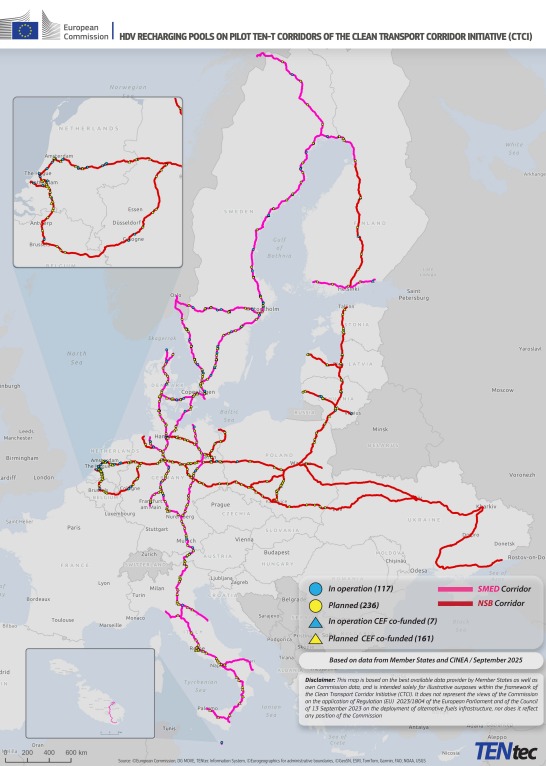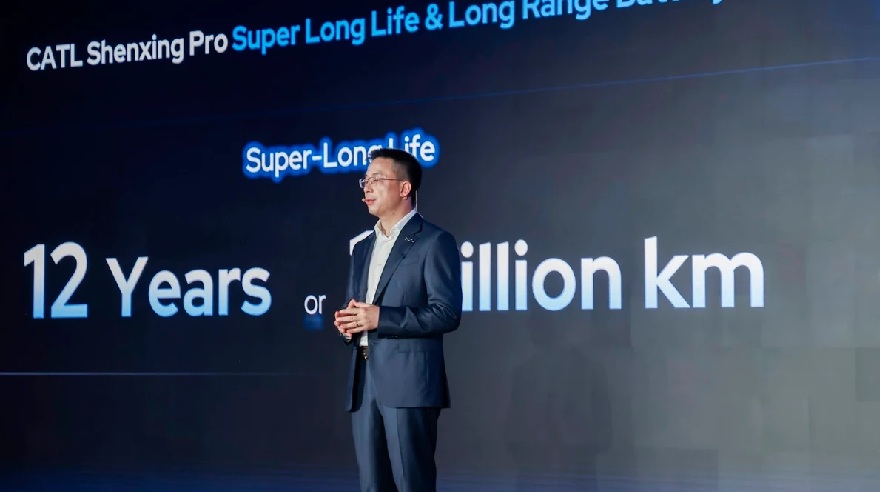The European Union (EU) is taking a significant step towards reducing transport emissions from road freight.
Apostolos Tzitzikostas, Commissioner for Transport and Tourism, presents the Clean Transport Corridor Initiative, which seeks to accelerate the deployment of heavy-duty vehicles recharging infrastructure across key freight corridors.

The initiative will start with the Scandinavian-Mediterranean and North-Sea Baltic Corridors as the first test cases.
The Clean Transport Corridor Initiative, endorsed by nine Member States along the two transport corridors, will be highlighted at a signing ceremony of a Ministerial Declaration on truck recharging infrastructure in Brussels.
The declaration sets out commitments to enhance cooperation and tackle key challenges, including lengthy planning and permitting processes, limited site availability, fragmented funding, insufficient grid capacity, and delays in electricity grid access.
It represents both a joint political commitment and a strategic guide for current and future policies on truck recharging infrastructure.

The European Commission will continue working with the Member States to detail the measures in a roadmap and to expand the initiative to other Trans-European Transport Network (TEN-T) corridors, further supporting Europe’s transition to clean road freight transport.
READ MORE
-
Tritium reveals: What are CPOs in the UK looking for – and how to deliver it?
The UK sets specific standards for charging infrastructure that CPOs must meet. Kevin Pugh from Tritium explains how the firm adapted to these rules and met CPO requirements.
-
EU launches Clean Transport Corridor to boost electric HGV charging rollout
The Initiative seeks to accelerate the deployment of heavy-duty vehicles recharging infrastructure across key freight corridors. Where will it start?
-
CATL launches EU battery with 750 km range and over 1 million km lifespan
CATL claims this version will last for 12 years or one million kilometres, representing a radical shift in the EV sector.









